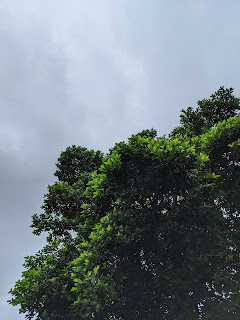Buddha second arrow- A lesson Learnt
“In life, we can’t always control the first arrow.
However, the second arrow is our reaction to the first. The second arrow is optional.”
This first arrow may be a lousy or hurtful event (like missing the train, burning food while cooking, spilling medicine, being late for work, etc.), which can cause pain or inconvenience to our inner peace for the moment or an hour or so, but it should get over.
But, generally, the hurt of the first arrow isn’t over yet.
There is a second arrow, which brings more pain and suffering. The second arrow represents our reaction to the wrong event—how we choose to respond emotionally.
For example, we may forgive ourselves for burning the food (1st arrow) and later decide to cook another meal for the day or order from a restaurant. It can also happen that we may become disappointed (2nd arrow) with ourselves for burning the meal and, in reaction, become angry with others for distracting us from the kitchen or blame our partner for not reminding us about the stove!
Or
It is like something went wrong in the office (1st arrow). We shout (2nd arrow) at our spouse, and the spouse beats the kids, and the kids break the toys!!
Can we avoid the second arrow?
Quoting directly from the story-
The Buddha says: “The first arrow hurts; why do we shoot the second arrow into us, ourselves?” And yet we do. He says: “In life, we cannot always control the first arrow; however, the second arrow is our reaction to the first. The second arrow is optional.”
In these times of constant disturbances, where the fear of missing out continuously nudges our attention, this story is the “moral” to learn. The definition of “hurt” has evolved. Almost all the online/offline platforms, from purchasing sites to health books or education apps with flashy pictures and voluminous data, are making us doubt our opinions and options. Information confuses us during this decision-making journey and hurts our egos and sentiments, yet we are never satisfied or have “santosh” in our actions, plans, or achievements. Among many things, I say, over-analysis or overthinking after things have happened and time has passed is the primary cause of the second arrow in our lives.
There is a new fad of viewing motivational/self-aware/self-respect-related YouTube videos. And despite the million views of such videos or successful launches of motivational genre books, the number of depression cases is on a constant rise. This knowing-all syndrome has reduced our sensitivity towards the actual meaning behind the speeches. It seems to me that we have somehow become immune to the sensitive issues around us. Our empathy shoe has thinned. We are prone to overthink the smirk-ish events (not necessarily the bad ones) in daily life, nullifying the lessons learnt from these videos/books and returning to square one of our self-growth journey. We keep consuming motivational/self-aware/self-respect-related YouTube videos without understanding them. This vicious circle of trying and keeping our inner being motivated seems so tedious that some of us just give up and dig further in the degrading line towards depression and self-loath.
Let’s never forget that it's our choice whether to accept or deny the second arrow.
By infusing positivity and accepting the situation without dwelling on 'ifs' and 'buts', we can skillfully integrate such events into our life experiences.
When we liberate ourselves from self-imposed guilt and build a shield against others' opinions, we are free to embrace life and its moments as they come.
A life without the second arrow is light, joyful, and radiant. Let's reflect on this and make it a part of our daily practice.



This principle is very profound. It forms the basis for Karma, Mental Fitness, and all the science behind Manifestation and LOA. The way you have described the book and blended them with your own perspective examples allows the readers to look at it in a simple and understandable way. Thanks for sharing.
ReplyDeleteThank you, dear, for your kind words. Keep checking the blog for new posts.
DeleteBeautifully written post.
ReplyDeleteVery profound thought and way of comprehending it!
Thank you 😊
Delete